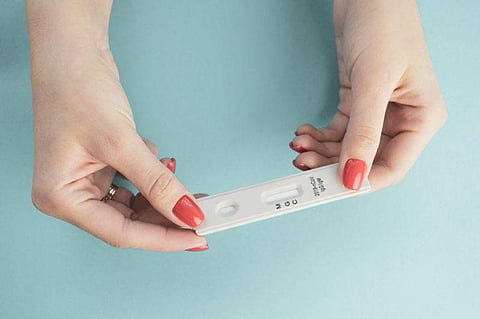TUESDAY, Dec. 28, 2021 (HealthDay News) -- The U.S. Centers for Disease Control and Prevention announced Monday that the recommended isolation time for people with COVID-19 is now reduced from 10 to five days for those who are asymptomatic. The agency also released updated guidance Thursday that reduces isolation time after COVID-19 infection for health care workers.
In Monday's announcement, the agency said that people who test positive should isolate for five days, and if they are asymptomatic, they may leave isolation while continuing to mask for five days to minimize the risk for infecting others. The CDC said the "change is motivated by science demonstrating that the majority of SARS-CoV-2 transmission occurs early in the course of illness, generally in the one to two days prior to onset of symptoms and the two to three days after."
The recommended quarantine period for those exposed to COVID-19 is also being reduced: For those who are unvaccinated or who are more than six months from their second mRNA dose (or more than two months from a Johnson & Johnson vaccine) and have not yet received a booster, the recommended quarantine period is now five days followed by strict mask use for five days. Those who have received a booster shot do not need to quarantine following an exposure but should wear a mask for 10 days postexposure. Best practice for all -- whether vaccinated or unvaccinated -- is to test for SARS-CoV-2 on day 5 after exposure, unless symptoms occur, in which case, individuals should immediately quarantine until a negative test confirms the symptoms are not related to COVID-19.
On Thursday, the agency announced that health care workers with COVID-19 who are asymptomatic may return to work after seven days with a negative test, and they say isolation time can be further reduced if there are staffing shortages. In addition, all health care workers who have received all recommended COVID-19 vaccine doses, including a booster, do not need to quarantine following high-risk exposures.
National Nurses United took aim at the CDC decision to shorten the isolation period for health care workers who have tested positive, stating that "shortening the isolation time for COVID-positive asymptomatic health care workers will only lead to more transmission."
However, the Infectious Diseases Society of America and the Society for Healthcare Epidemiology of America expressed support for the updated interim guidance. "These approaches are crucial to ensure we have the necessary health care workforce to respond to the growing omicron surge, and we greatly appreciate CDC updating its guidance so rapidly," the organizations wrote in a statement. "While data on omicron remain limited, data from previous variants can be used to inform our current response and meet immediate pressing needs as we collect more data on omicron."
CDC Press Release - Recommended Isolation Time
CDC Press Release - Guidance for Health Care Workers


